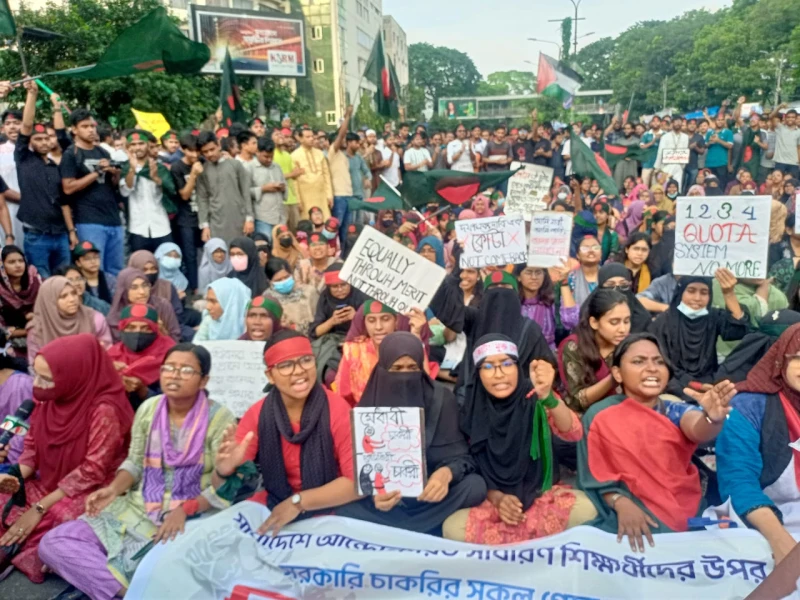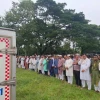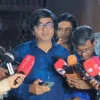Bangladesh’s politics is now at the crossroads. Apparently, two small elections – Dhaka University Students’ Union (DUCSU) and Jahangirnagar University Students’ Union – have given the nation a big jolt. Leaders of liberal democratic parties like BNP have started soul-searching, asking themselves if they are on the right track.
The two student union polls were held just ahead of Bangladesh’s national election, expected in February, following the earth-shaking July Upsurge.
Since the fall of the Sheikh Hasina regime on August 5, after a 36-day boiling movement, the nation has been united in its expectation of real change in the political landscape. During the following months, an impression grew that the Bangladesh Nationalist Party (BNP) was the main contender in the 13th parliamentary election.
Bangladesh Jamaat-e-Islami and its student wing, Islami Chhatra Shibir, did not sit idle; nor have they over the past 26 years. At one point, they claimed it was Chhatra Shibir that had silently worked through the years to topple the Awami League of Sheikh Hasina.
Amid political bickering, a war of words has broken out among the parties. Out of this has emerged the National Citizen Party (NCP), believed to be a new edition of Bangladesh Jamaat-e-Islami. Over the past few months, BNP, Jamaat and NCP have exchanged harsh words over reform issues, particularly the July Declaration, the July Charter and Proportional Representation (PR).
BNP has reservations about several points, especially PR, while Jamaat and NCP strongly support it, seeing it as suitable since their vote bases are thought to be weaker than that of BNP, the party founded by former president Ziaur Rahman.
Amid the fast-evolving situations, the people of Bangladesh saw the much-hyped DUCSU and CUCSU elections. The new generation, particularly Gen-Z, appears to stand against dynastic politics, rallying around NCP and Chhatra Shibir while chanting anti-corruption slogans. They look at the family of Sheikh Mujibur Rahman and that of Ziaur Rahman, reviving the concept of ‘Minus-Two’ formula.
Corruption, extortion and manipulation of democratic institutions remain major problems in Bangladesh, liberated from Pakistan in 1971 after a nine-month war. Yet the people who shed blood for freedom have seldom enjoyed its full benefits. After independence, the country faced political turmoil at various times, governed in turn by Ziaur Rahman, HM Ershad, Begum Khaleda Zia and Sheikh Hasina. Still, hopes for a peaceful and inclusive democracy remain unfulfilled.
Whoever came to power over the past five and a half decades could not fully deliver on promises. Today, after the fall of the Sheikh Hasina regime, people feel confident that any government working against the national spirit and democratic values can be toppled. Events in neighbouring Nepal in recent weeks add weight to this sense of rapid political change.
Has Gen-Z made this possible? Are they the transforming force for a future democratic order? Many think so, though their unique approach presents both opportunities and challenges for democratic governance.
A 2025 CIRCLE report found that while 63% of young people in the US have only a ‘passive appreciation’ for democracy, 31% feel detached and 7% are hostile, believing the system has failed them. Studies also show young voters, dissatisfied with political establishments, are turning to far-right parties – a trend spreading in Asia as well.
Poverty, social discrimination and waning trust in traditional institutions are driving youth uprisings worldwide. Much remains to be seen in the coming years.


 Prev Post :
Prev Post :
